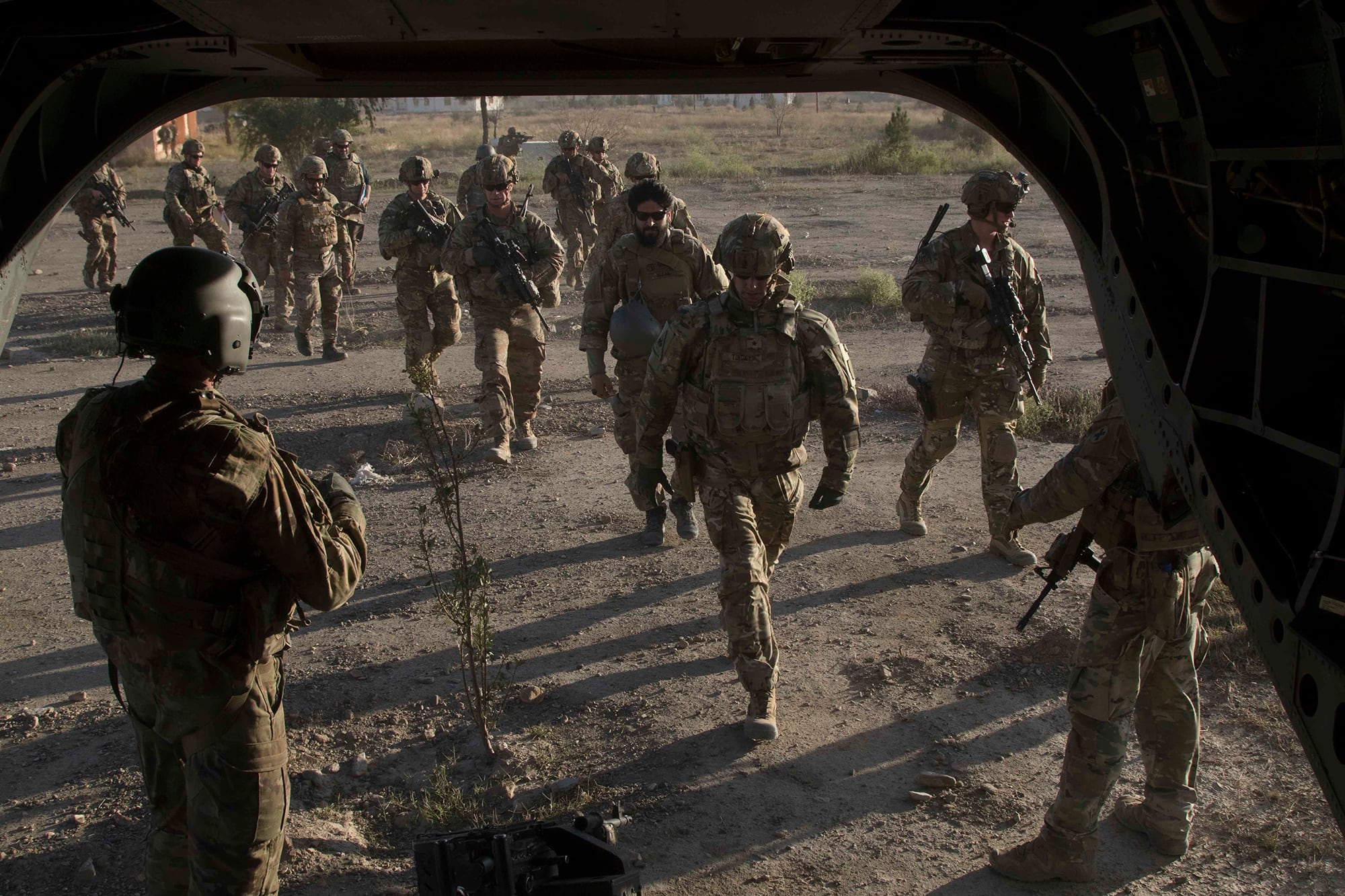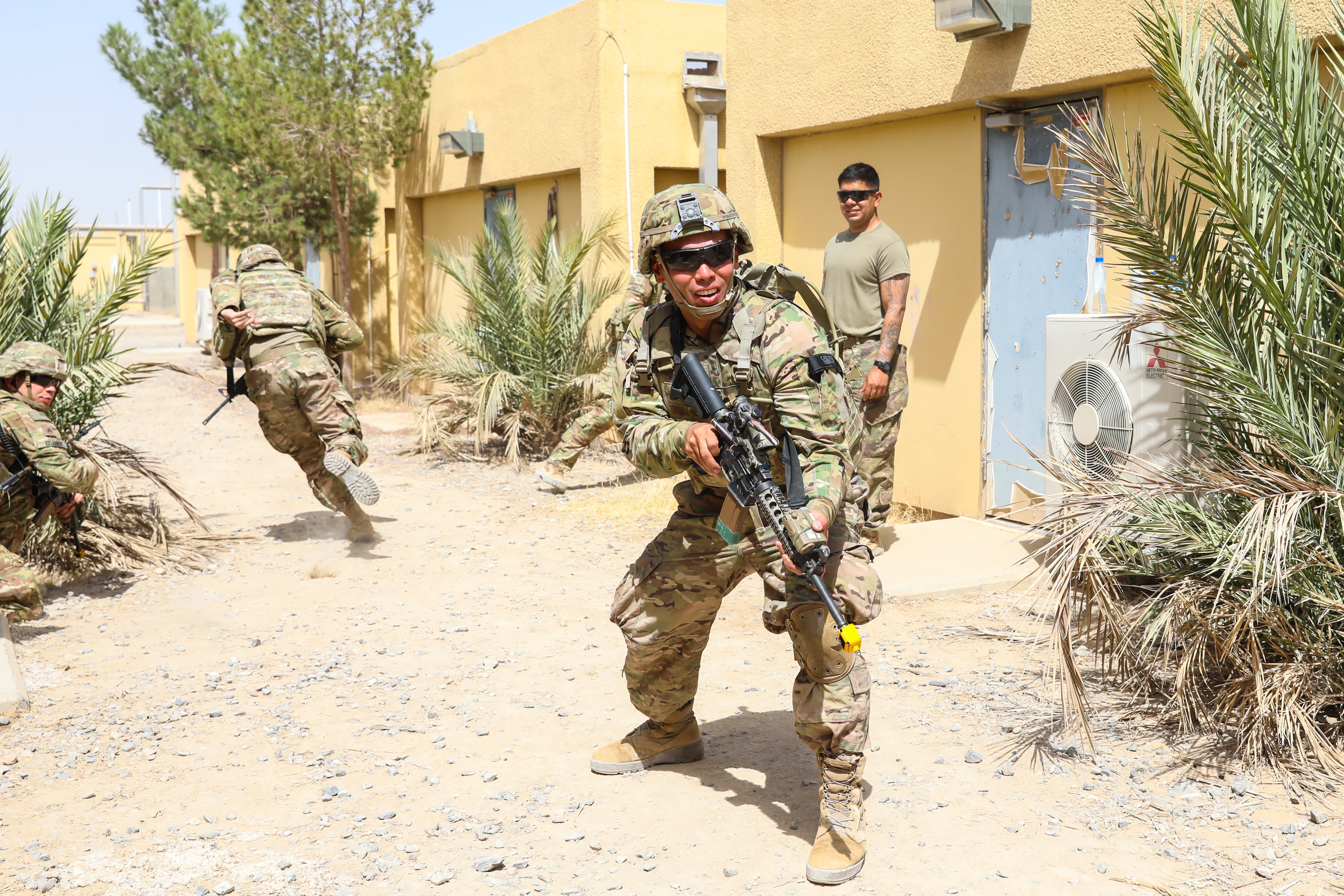While the Trump administration may feel confident that Afghanistan is no longer a safe haven for al-Qaida, experts who testified before the House Armed Services Committee on Friday warned that withdrawing troops without a peace agreement amounts to a gradual surrender and could lay the groundwork for terrorist networks to once again make a home in the country and begin plotting against the U.S. anew.
The hearing, long scheduled, was notably absent of current Pentagon or White House officials, but came three days after Acting Defense Secretary Chris Miller announced that the drawdown would proceed right past the 4,500 benchmark completed earlier this month and on down to 2,500 in January.
The question came down to whether an Afghanistan withdrawal would, in the short or long-term, lay the groundwork for another transnational terrorist attack on the U.S.
“The number of militant groups operating in some capacity in Afghanistan today, not just al-Qaida ... still persist,” Seth Jones, who directors the Transnational Threats Project at the Center for Strategic and International Studies, told HASC chairman Rep. Adam Smith, D-Wash. “So what I can’t say is, tomorrow things are going to get as bad as, say, on 9/11. But I think the trajectory is where I’d be concerned.”
And a small counter-terror force, whether it’s 2,500 or lower, the experts said, would not be able to step in if the Afghan government falls to the Taliban, an event that would have a direct effect on the possibility of another terror attack on the U.S. launching from that country.
The decision to continue with the drawdown brought into question whether the Taliban had met the “conditions” Pentagon leaders had harped on for months ― among them, a commitment to rooting out al-Qaida, its ongoing ally, in Afghanistan, as well as a reduction in violence against U.S. troops.
Previously, Pentagon officials had set 2,500 as a benchmark to be carried out only after reassessing the situation following the 4,500 level reached this month. Former Defense Secretary Mark Esper had advocated for that pause, but after his ouster Nov. 9, the Trump administration forged ahead.
Withdrawing troops gives away leverage in current peace talks, a former ambassador to Afghanistan said.
“These are surrender talks. We’re waving the white flag, basically saying to the Taliban, ‘You win, we lose ― let’s dress this up the best we can,’ " Ryan Crocker, who served from 2011 to 2012, told the committee in his prepared remarks.
Another expert doubled down on the surrender theory, explaining that this partial drawdown, with no concessions made by the Taliban, is actually worse than pulling troops out of the country wholesale.
“I believe our interests are best served by no further withdrawals without a settlement to end the war,” Stephen Biddle, a senior adjust fellow at the Council on Foreign Relations, said in his remarks.
By drawing down troops without demanding anything equally substantial from the Taliban, he said, the U.S. is giving away its leverage against them and giving them exactly what they have wanted all along, which is the American government out of their affairs.
“Why should they offer concessions when the U.S. keeps giving away what they want for free?” he said.
If the withdrawal is an acknowledgement that a peace agreement isn’t going to happen, he added, it would make more sense just to pull everyone out, rather than waste resources and perpetuate the risk of keeping a 2,500-man counter-terror force on the ground.
Though the Pentagon refused to get into specifics on Tuesday, lawmakers noted that the remaining troops will be largely counter-terror units, of the sort that have been fighting al-Qaida and ISIS within Afghanistan.
That would mean thousands of train-advise-assist troops will be leaving behind unprepared Afghan security forces, as experts have agreed ― including the Pentagon’s own inspector general organizations ― that while the Afghan government will ultimately be responsible for maintaining its own peace, its forces are alone not operationally capable of beating back a resurgent Taliban.
‘Common sense’
The administration’s plan has received mixed derision and support from lawmakers, with Senate Majority Leader Mitch McConnell, R-Ky., warning against a rapid withdrawal, while Smith has come out in support of the incremental draw down to 2,500.
“It seems like the common sense thing to do is to have the absolute minimum presence that we require to meet our goal of stopping that transnational terrorist threat,” Smith said, suggesting a more modest U.S. approach to contain the threat, akin to the ones in Libya, Yemen or Somalia.
Smith’s comments left some room to veer off of the current Trump administration course, which is to complete a total withdrawal by May. The incoming administration under President-elect Joe Biden has not made a statement on whether he has a different road map..
RELATED

“I happen to believe that we need to draw down there because of the cost, because of the impact, and because of the fact that it has become clear that we are not going to be able impose peace upon Afghanistan,” he added.
In the 19 years since the original invasion, more than 2,400 American troops have died, nearly 21,000 have been injured and nearly $1 trillion has been spent on trying to make Afghanistan stable enough to keep terrorist networks from running rampant there.
Further, Smith supposed, the situation in Afghanistan will continue to be unstable, but the only question for lawmakers is whether U.S. presence has any real effect on that, and if the U.S. can live with the consequences of leaving them to their devices.
“Lives are still being lost, money is still being spent, our troops and others are still being forced to be sent over them there, and the American people are saying, ‘For what?’” Smith said. “And if the answer is, we just have to hang in there for another year or two; gosh, if we just send another 5,000 troops, we’ll get to a peace deal ― I don’t think anyone believes that, not in any serious way. ... What happens if we pull out? Just a slightly different flavor of chaos, in the minds of most people.” '
And should the Taliban attempt again to take over Afghanistan and again create a safe haven for terror groups, would the U.S. be able to respond with 2,500 counter-terror troops in the country?
“It’s a mistake to separate counter-terrorism and the survival of the Afghan government,” Biddle said. “If the Afghan government falls and the Taliban take over, or there’s simply a chaotic civil war, the terror threat from Afghanistan will go substantially up ― and the ability of a handful of American troops operating from a handful of bases ... will be very, very limited.”
Meghann Myers is the Pentagon bureau chief at Military Times. She covers operations, policy, personnel, leadership and other issues affecting service members.
Joe Gould was the senior Pentagon reporter for Defense News, covering the intersection of national security policy, politics and the defense industry. He had previously served as Congress reporter.





